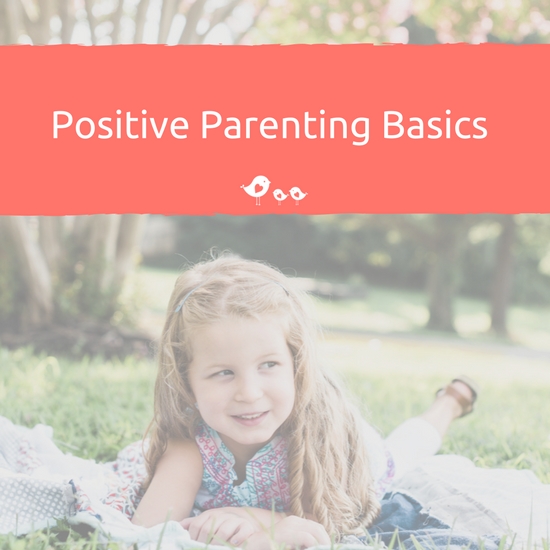Positive Parenting Basics
Positive Parenting Basics

Positive Parenting Basics
The term, “Positive Parenting” is relatively new and it’s reaching far and wide. This parenting push is being received by all kinds of caregivers around the globe and is delivering great results. Read on to learn all about this movement and how you can implement it in your household today.
So, what is it?
Dr. Laura Markham said the following about positive parenting: “Positive parenting -- sometimes called positive discipline, gentle guidance, or loving guidance -- is simply guidance that keeps our kids on the right path, offered in a positive way that resists any temptation to be punitive. Studies show that's what helps kids learn consideration and responsibility, and makes for happier kids and parents.”
This sounds like every parent’s goal, but some parents tend to hit some road blocks when attempting to get there.
How Can I Do it?
If you want to parent positively, there are a few steps to follow.
First, it is important that your mindset changes. Often times, parents are so used to punishing. But, positive parenting focuses on teaching. Every situation is and can be a learning experience. Because children’s brains aren’t fully developed until they hit their early 20’s, many experts feel that acting out isn’t necessarily in a child’s control. This is why harsh punishments don’t often work, and can totally backfire in the long run. When you change the way you think in this regard, you’ll be open to the positive concept.
Next, modeling is key. Act the way you want your child to act. Make every moment a teaching moment. Don’t fly off the handle; keep your anxiety at bay. Smile and laugh. Hug and kiss. Be giving, be loving. Fully embody the person you want your child to become. They watch, they listen, and they will take your visual and verbal cues to heart. They will become a direct product of their environment. Yelling and acting angry at your child will result in a mirror image to yourself-an angry and upset child.
Also, a huge component of positive parenting is playing with your child. Be hands on, be present. When you play with your child, you not only bond with them, but also have more unique options to teach them about right from wrong, model desired behaviors, and spark up a discussion. Read, put on puppet shows, do arts and crafts-play options are endless, fun, and rewarding.
Finally, get rid of rewards. Much like taking away punishments, you should also take away the concept of rewards. This teaches kids to work towards a goal because it’s expected of them. Reading their goals should be their intangible prize.
Positive parenting helps teach kids empathy, respect, kindness, sympathy, love, and selflessness. It is an entirely different way that most people think (What? No consequences??), but it has come to show that it works. When you involve your children in decision-making, discussions, and other social interactions, they get the love and attention they need.
Be their guide, be their companion. Don’t be their dictator, don’t install fear. The concept and term has been coined to help cut down on behavior disconnects and to focus on the positive things your child does each day, rather than the negatives. Who knows? Maybe you can become a happier, less stressed parent in the long run, too!




